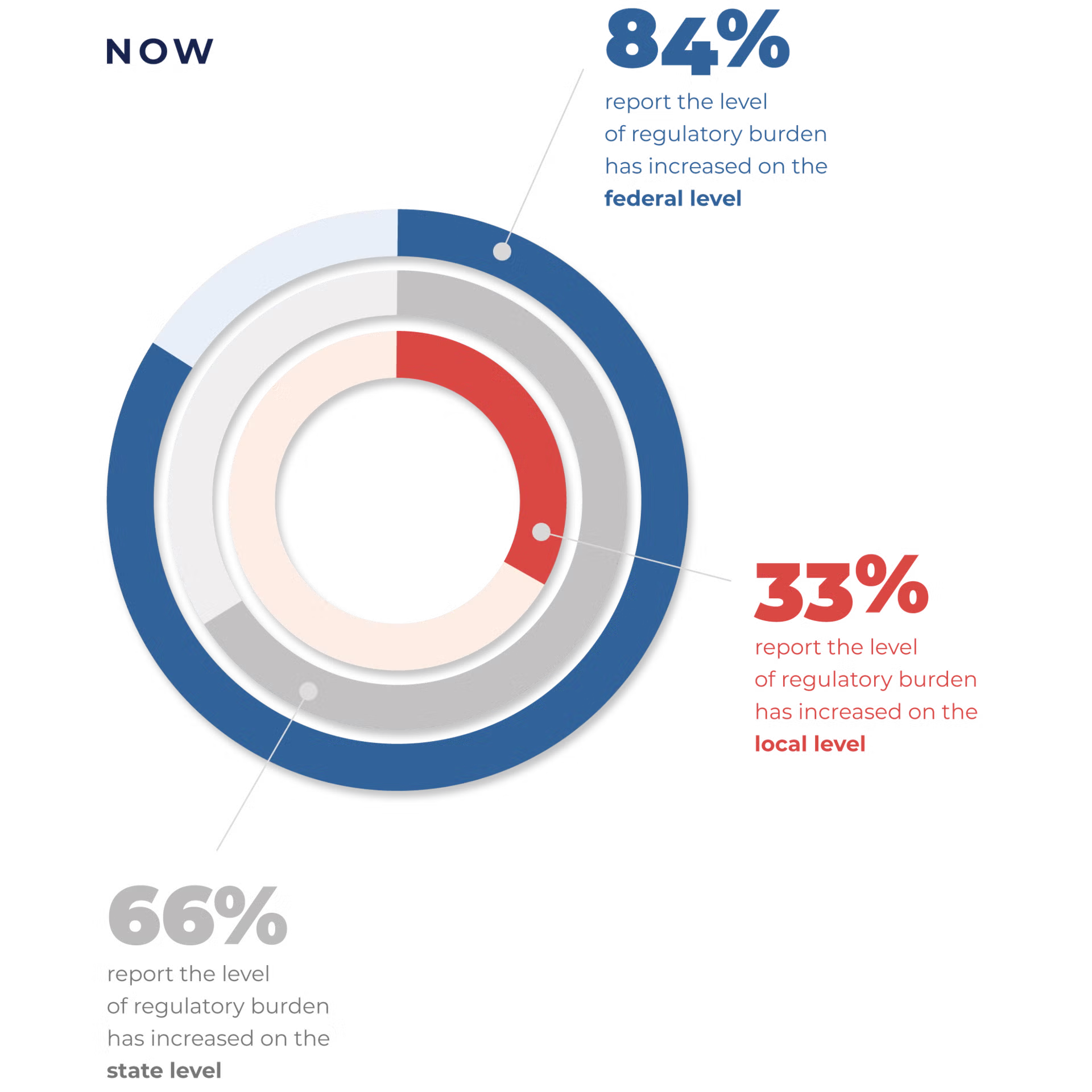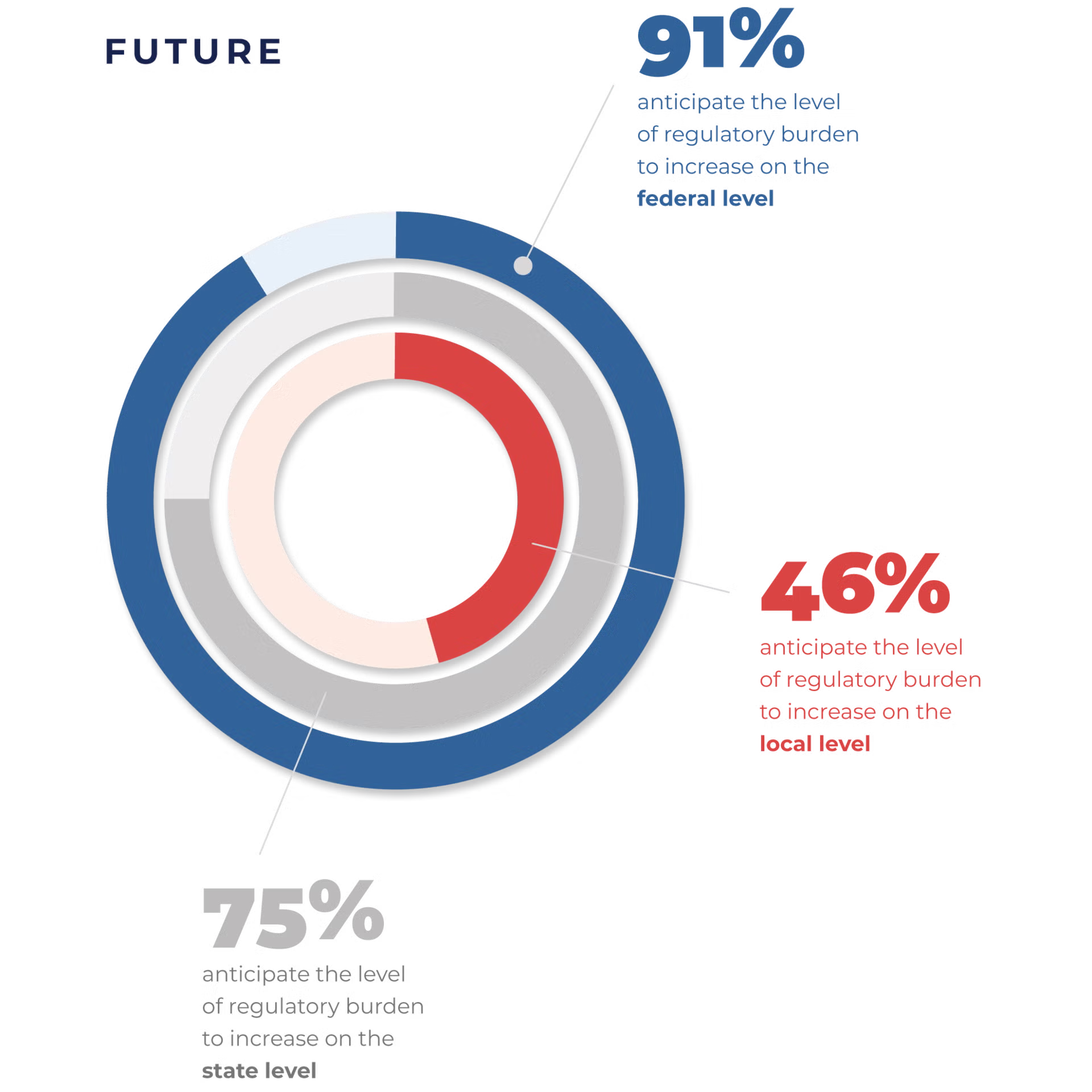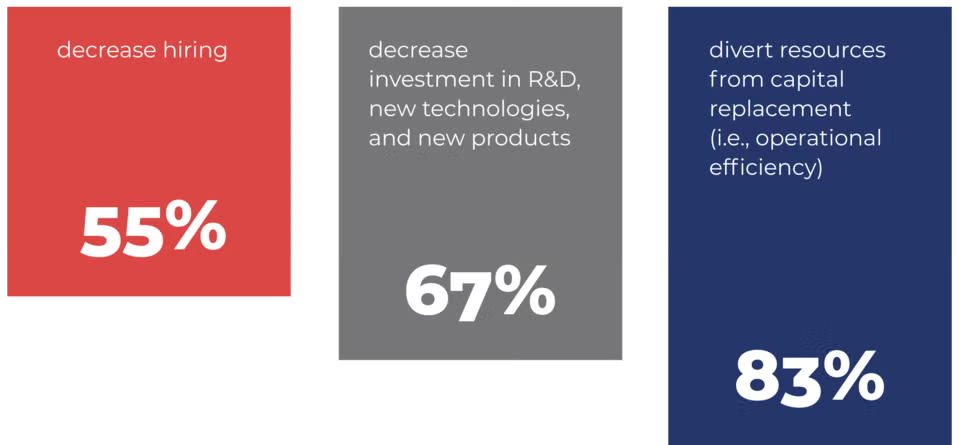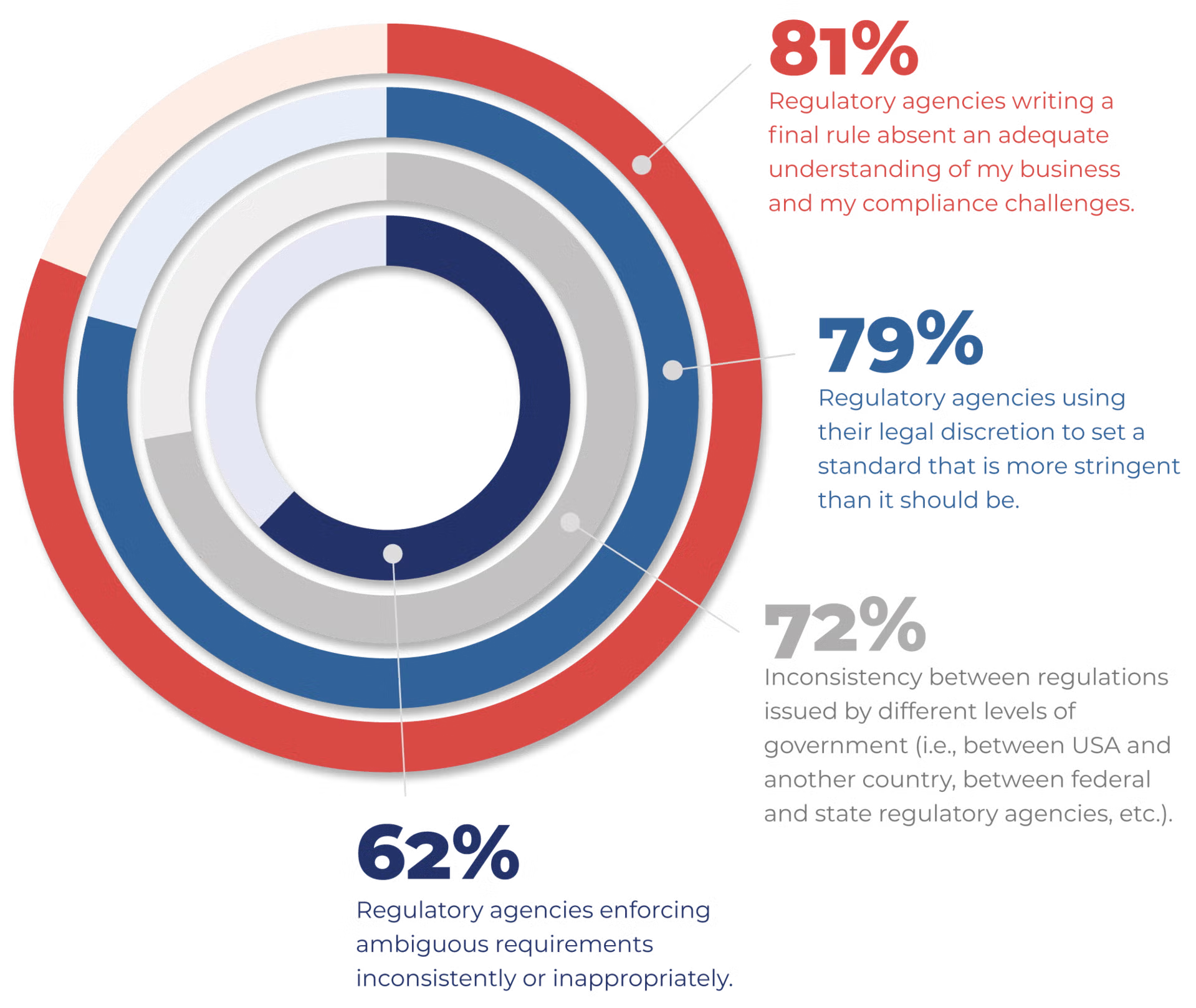ACC Member Survey
The Impact of Rising Regulations on Chemical Manufacturing & American Priorities report provides valuable insight into the impact of the tremendous rise in chemical regulations and how they adversely impact national priorities and American manufacturing. The findings are the result of a survey of ACC member companies doing business in the U.S.
U.S. chemical manufacturers continue to face challenges from persistent inflation, competition overseas, and a dramatic increase in regulations at home. Unless policymakers take a different approach to how they develop and apply regulations, critical chemistries will suffer along with the important products supported by chemistry.







